
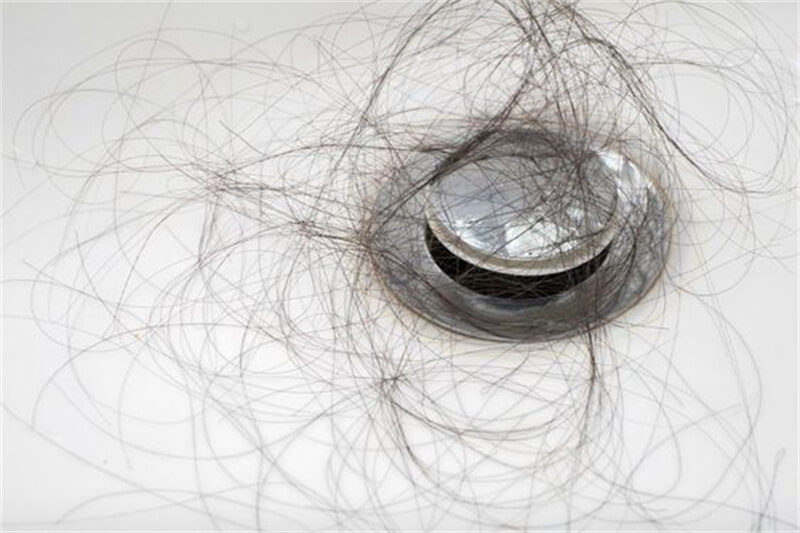
According to the American Academy of Dermatologists, it’s normal to lose anywhere from 50 to 100 strands of hair per day. For the girls with long hair, it will be more noticeable. But in this range, it is normal hair loss.Because the hair has its own growth cycle and there are 100,000 or more hair follicles on each person’s scalp, the loss of 100 or so hair strands a day doesn’t make a big difference in appearance.
There are hundreds of thousands of hairs on our heads, and every hair is at a different stage of its two- to five-year lifespan.
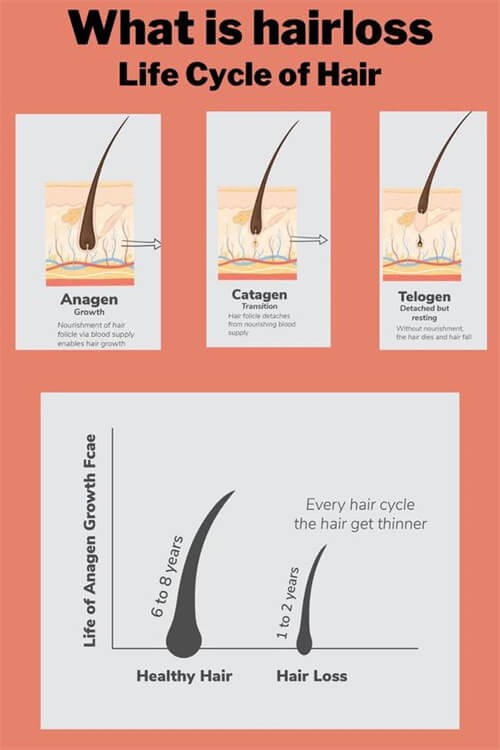
The first phase of a hair strand is called the “anagen” phase, and 90% of our hair is in this phase. Hair grows about 1 centimeter per month. When something stops your hair from growing, it’s called anagen effluvium, which is what you would typically think of when you think of hair loss.
The catagen phase comes next, which will last two to three weeks. During the catagen phase, the hair strand stops growing. The last phase of hair growth is the telogen phase. During this phase, a hair strand will be at rest as it prepares to detach from your scalp. About 8 to 9 percent of your hair is in this phase at any given time.
If you feel that your hair shed more than usual and your hair is getting thinner and thinner but still cannot find the reasons, there are some of the most common causes of hair loss.
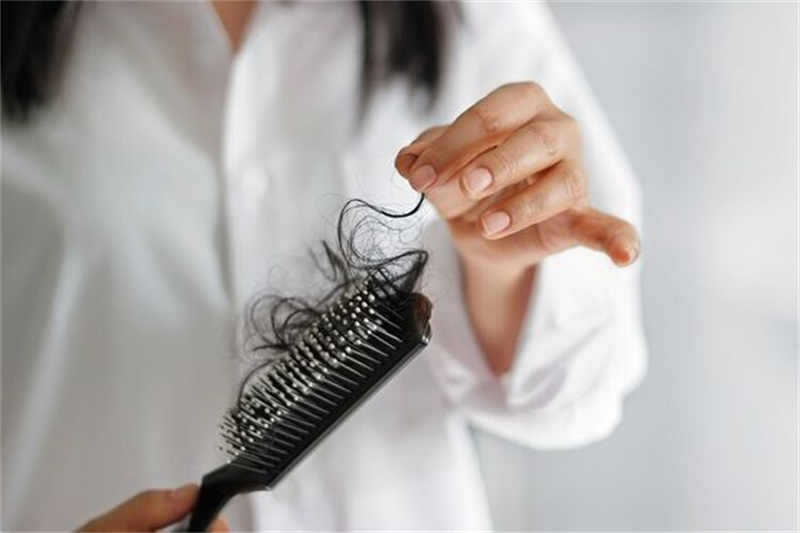
If you are suffering from hereditary hair loss, then hair loss is an inevitable problem. Because you can’t prevent this type of hair loss entirely, we recommend that you’d better have ongoing conversations with your doctor to get some treatments available.
During pregnancy, the hair will go into rapid growth mode. Once estrogen levels go back to normal after delivery, hair resumes its normal growth cycles and starts to shed all that thick, luscious hair that accumulated over the last 10 months. But don’t panic, postpartum hair loss is temporary. You don’t have to do anything to solve it.
Getting enough nutrients is essential for ensuring good health, and healthy hair is no exception. Many nutritional deficiencies including iron, zinc, vitamin B3 (niacin), and protein have all been linked to various types of hair loss. You can see a doctor first and make sure which kind of nutrient you lack, then accurately diagnose your issue.
Some medications can cause chronic shedding, especially those used to manage high blood pressure, cancer, arthritis, and depression. Generally, this type of hair loss is temporary as well.
If you are suffering from scalp psoriasis, the scalp will be dry, and itchy and there is the formation of silvery-white scales and dandruff-like flaking. If you scratch your scalp a lot or forcefully pick the scales, it may cause hair loss.
Generally, the increased shedding will gradually resolve naturally without treatment. But if your hair doesn't return to its normal fullness within nine months, see a doctor for an evaluation to find out whether something else is going on. Here are some efficient hair loss treatments you can do in daily life to improve hair loss.
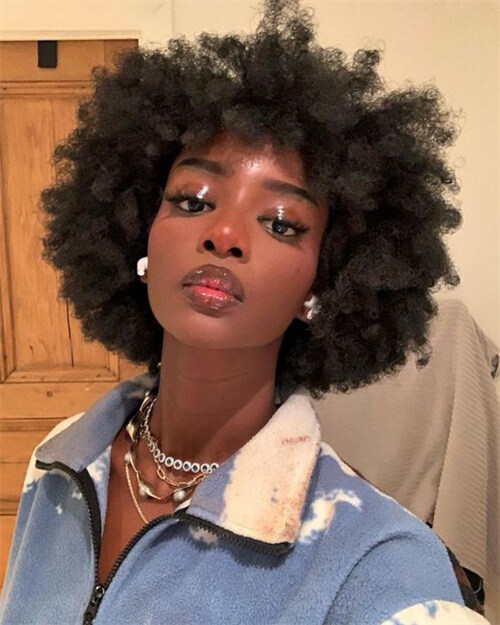
Under- and over-washing can affect the volume and feel of your hair. If you don’t wash your hair for a long time, it will cause a buildup of product and oil that will be a burden for your scalp and hair. But washing too frequently can strip the hair of its natural oils, making it more dry and prone to breakage. You should wash your hair three times a week, and once a week is enough for girls with naturally curly hair.
A lack of protein can lead to hair loss. Therefore, we recommend that you add more protein, especially for some girls who are keeping a diet or are vegetarian, the hair loss may be caused by insufficient protein intake. some ways to hit your daily protein requirement include eating beans and legumes, eggs, or Greek yogurt.
Vitamins and minerals like vitamins A, B, C, D, E, zinc, and iron are important factors that affect your hair growth. But you should consult your doctor, after various professional tests, you will know if you have a vitamin deficiency and then prescribe the right medicine.
Remember to use conditioner after shampooing, which will make your hair shinier and helps reduce static electricity, both of which helps thinning hair look fuller and glossier. And avoid harsh hair treatments like heating tools, hair dye, and bleaching. Hairstyles like tight ponytails or braids can affect your hair as well.
Exercise can help strengthen our physique and is also a great way to relieve stress. Give up on staying up late and give yourself enough time to free yourself from the stress of work and life. Excessive anxiety can disrupt our endocrine system, which can lead to hair loss. So it's important to stay happy.
In short, it is normal to lose less than 100 hairs a day. If you find that your hair is falling a bit more, then you can follow the methods mentioned in our article to improve the condition of your hair. However, if you have excessive hair loss and have been losing hair for a long time, then you should go to the hospital and seek the help of a dermatologist. What other knowledge about hair loss do you want to share with us? Welcome to leave your ideas in the comment area.
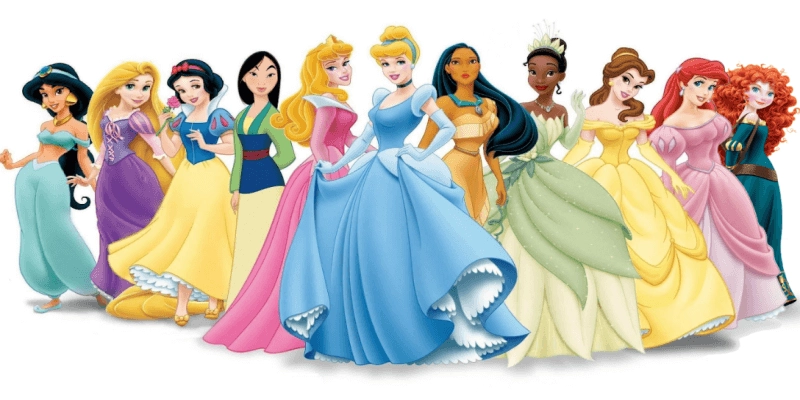 8 Disney Princesses Hairstyle Collection-You Don't Miss
8 Disney Princesses Hairstyle Collection-You Don't Miss
 Swoop Ponytail: How do You Tie a Unique Hairstyles?
Swoop Ponytail: How do You Tie a Unique Hairstyles?
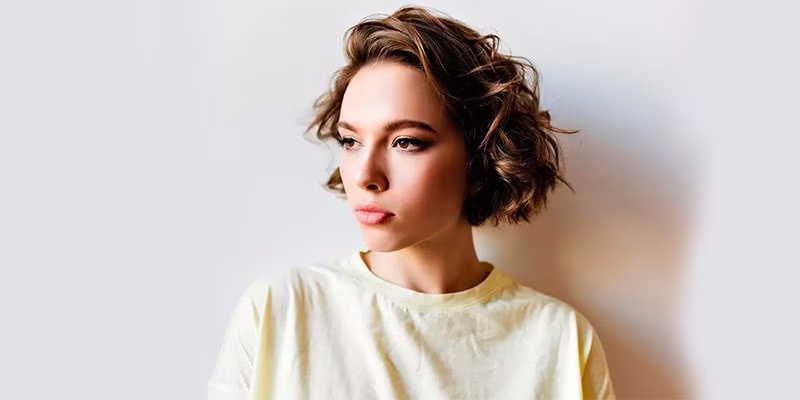 2023 Hottest Trend: Curly Bob Haircuts
2023 Hottest Trend: Curly Bob Haircuts
 U Part VS V Part Wigs, Which One Is Better?
U Part VS V Part Wigs, Which One Is Better?